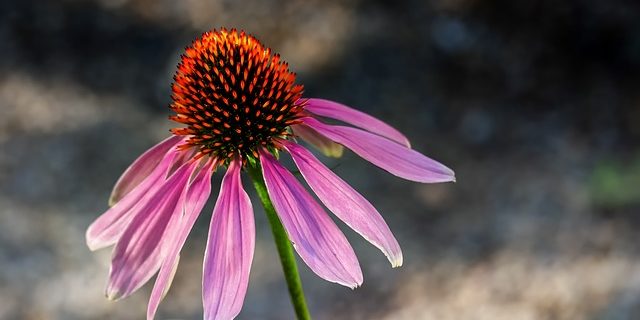These “common” herbs have successfully made their way into mainstream culture and endeared themselves to scientists and clinicians alike. This is great news, but it sometimes results in a loss of complexity for the herbs in question. Today we’ll flesh out a few these household names and discuss some of their lesser-known uses.
Lemon Balm
Melissa officinalis
Lemon Balm is one of the most common “intro” herbs because it’s incredibly gentle and easy to grow. The pleasant, lemony taste and scent of this plant makes it an instant favorite among aspiring herbalists. Not only does it smell and taste wonderful, it acts as an instant stress-reliever as well. Lemon Balm imparts a gentle, soothing effect on the nervous system, and it eases a colicky digestive system as well.
Uncommon uses: Who would have thought that gentle Lemon Balm could also be a powerful antiviral medicine? It’s true– Lemon Balm is one of the most effective remedies for viral skin conditions including herpes, chicken pox, and shingles. When used externally, Lemon Balm is extremely effective in relieving the symptoms of herpes simplex. It soothes pain, decreases healing time and increases the time between outbreaks. Lemon Balm is also a powerfully anti-bacterial herb.
Many herbalists believe that Lemon Balm’s most effective use is as a diaphoretic for breaking fevers. It is especially helpful in cases of childhood fevers due to its pleasant taste and its dual action of easing tension.
In addition to all of this, Lemon Balm tones the circulatory system and the heart. It is known to lower blood pressure as well.
Echinacea
Echinacea purpurea & angustifolia
Even if you aren’t an herb nerd, chances are you’ve heard of Echinacea. Most people associate Echinacea with boosting the immune system and warding off colds, and for good reason. Echinacea is a powerful immune system stimulant and can be used effectively for both viral and bacterial infections.
Uncommon uses: Echinacea is an excellent lymphatic cleanser. As many of us know, seasonal allergies can sometimes turn into nasty infections. Echinacea acts as a preventative measure in cases like this- when taken early enough, it flushes allergens and accumulated toxins from the lymph glands and allows them to pass from the body, decreasing the chances of developing an infection. Even if you aren’t dogged by allergies, Echinacea can be an ally in any cleansing regimen due to its lymph-cleansing action.
Echinacea’s topical uses are wide-ranging. It is extremely effective as topical medicine for any inflammatory skin eruption. It helps disinfect and heal boils, surface infections, septic sores, cuts, gangrene, poison oak and ivy, tick bites, venomous bites, and funguses.
Echinacea tincture or decoction makes an excellent mouthwash for gingivitis.
St. John’s Wort
Hypericum perforatum
This friendly, yellow-flowering plant has gained acceptance in the United States as an effective anti-depressant and mood elevator. St. John’s Wort is known to help with depression, anxiety, and irritability, especially when one suffers from Seasonal Affected Disorder or the mood-altering challenges of menopause. Studies have shown that St. John’s Wort compares to standard pharmaceutical anti-depressants. St. John’s Wort actually makes us more photosensitive, increasing our ability to absorb and utilize sunlight.
Uncommon uses: The less-discussed but equally amazing benefits of St. John’s Wort include its ability to ease pain and heal nerve damage and neuralgia. An infused oil of St. John’s Wort applied topically can stop sciatic pain in its tracks. St. John’s Wort oil is particularly healing for sunburn as well.
A lotion of St. John’s Wort can ease the pain and speed the healing of wounds, bruises, burns, and varicose veins. Both internal and external use of St. John’s Wort help with rheumatic and arthritic pain.
St. John’s Wort is known to reduce cravings and the ease the symptoms of withdrawal when quitting smoking or some other substance. It also helps us through the emotional process of quitting various addictive substances.
And finally, studies are currently being conducted on St. John’s Wort’s exciting ability to inhibit the growth of cancerous tumors.
*St. John’s Wort is known to interact with many common pharmaceutical drugs, including birth control. Always check with your doctor before starting a regimen of St. John’s Wort.
All 3 of these herbs are easy to grow and cultivate. Contact the author for more information at herbalcole@gmail.com.








